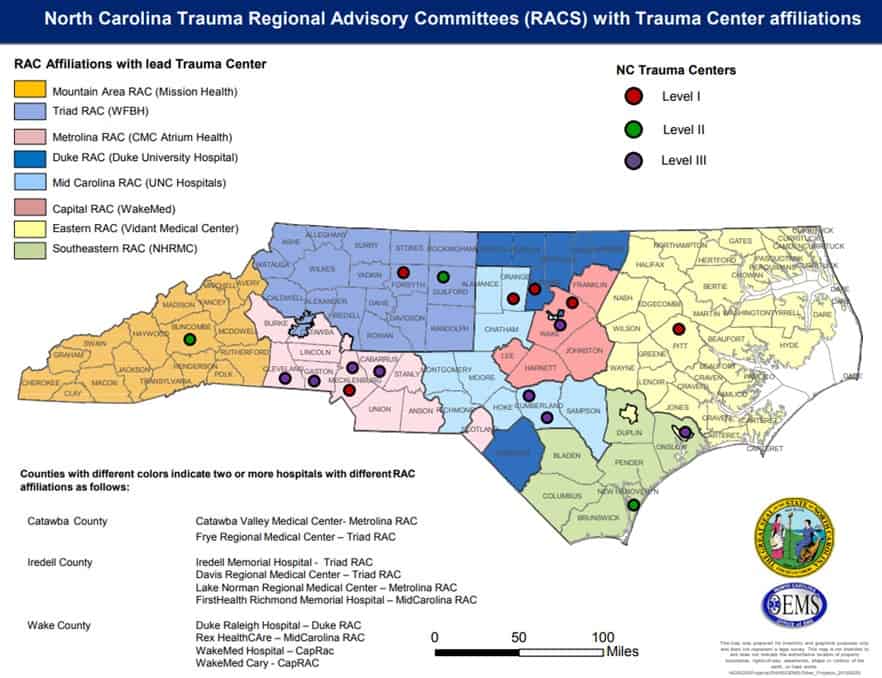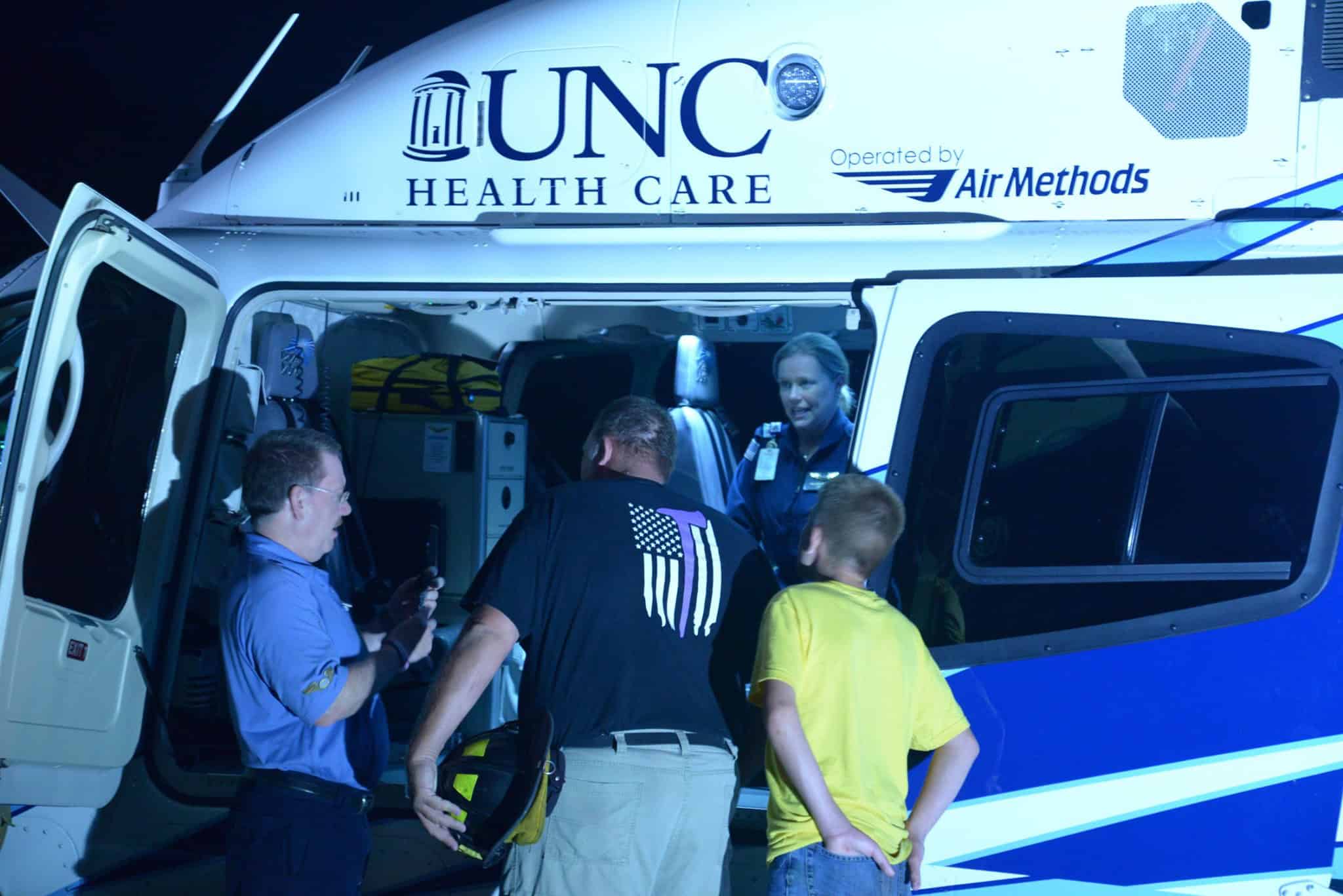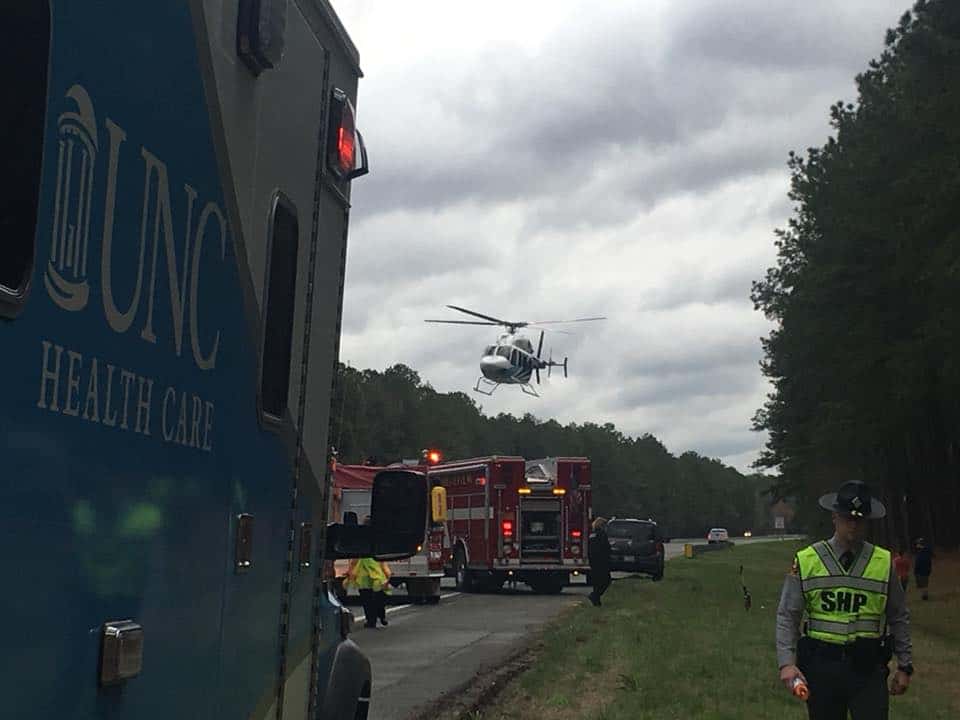Regional Advisory Committees
Regional Advisory Committees (RACs) were established, and their responsibilities outlined in the North Carolina Administrative Code (see 10A NCAC 13P .1101 , .1102 , and .1103 ). RACs were initially established for the purpose of regional trauma planning, to include establishing and maintaining a coordinated trauma system. Following September 11, 2001, RAC responsibilities/members significantly expanded to account for increased disaster and terrorism related activities.
The North Carolina Office of Emergency Medical Services (NCOEMS) oversees the RACs in North Carolina and works with them to coordinate their responsibilities regarding the state's trauma/terrorism initiatives.
The Mid-Carolina RAC Mission
The Mid Carolina Trauma RAC is organized for several of the purposes as referred to in the Statewide Trauma System Act of 1993 (G.S. 131E-162, Article 7A) and specified in rule 10NCAC 13P.1101-1103. The mission is to participate in development of standardized regional trauma care, as well as the establishment and maintenance of a coordinated trauma system to promote optimal trauma care and emergency preparedness for all citizens within the Mid Carolina Trauma RAC’s area.
The goal of the Mid Carolina Trauma RAC is to facilitate the development, implementation, and improve the efficiency of a comprehensive regional trauma care system based on accepted standards of care to decrease injury morbidity and mortality. The Mid Carolina RAC will achieve this by facilitating multi-agency collaboration among healthcare facilities, pre-hospital agencies, professional societies, and other healthcare organizations within the region.
Leadership
Mid-Carolina RAC
Dr. Daryhl Johnson
Mid Carolina RAC Medical Director
Kathy Wilson
Mid Carolina RAC Coordinator
Randy Hoffman
Disaster Preparedness Coordinator
RAC Lead Agency
University of North Carolina Hospitals
RAC Lead agency
Alberto Bonifacio
Trauma Program Manager
Paul Zarick
Pediatric Trauma Program Manager
Anna Stormzand
Injury Prevention Coordinator
Joey Grover
Emergency Medicine Physician
Hospital Members
Alamance Regional Medical Center
Cape Fear Valley Medical Center: NCOEMS Level III Trauma Center
Cape Fear Valley Hoke Health Pavilion
Fayetteville VA Medical Center
First Health Moore Regional Hospital
First Health Moore Regional Hamlet Hospital
First Health Moore Regional Hoke Community Hospital
First Health Moore Regional Montgomery Memorial Hospital
First Health Moore Regional Richmond Memorial Hospital
Cape Fear Valley Highsmith-Rainey Memorial Hospital
Sampson Regional Medical Center
Womack Army Medical Center NCOEMS and ACS Level III Trauma Center
UNC Chatham Hospital
UNC Hillsborough Hospital
UNC Rex Health Care
Emergency Medical Services Members
Alamance County EMS
CFVMC LifeLink CCT
Cumberland County EMS
First Health EMS Chatham
First Health EMS Montgomery
First Health EMS Richmond
Fort Bragg EMS
Hamlet Rescue and EMS
Hoke County EMS
Moore County EMS
Orange County EMS
Sampson County EMS
UNC Carolina Air Care CCT
UNC Rex HealthCare CCT
North Carolina RAC Map July 2019

NC Triangle Coalition
The North Carolina Triangle Coalition (NCTC) is a collaboration of three smaller coalitions consisting of healthcare organizations and public and private partners from 21 counties in central North Carolina. Each of the Capital, Duke, and Mid Carolina Coalitions are organized to prepare for, respond to, and recover from an emergency, mass casualty, disaster, or catastrophic event, but work collaboratively as the NCTC to more effectively serve their healthcare partners and the State Medical Response System (SMRS).

Mid Carolina Healthcare Coalition
The operational area of the MCRHC is in central North Carolina from Warren County at the Virginia border north of the Triangle, to Richmond County at the South Carolina border below the Sandhills, and southeast to beyond the Cape Fear River and I-95 in Sampson County. Coalition staff and centralized assets support Coalition partners and the State Medical Response System (SMRS) from a fixed facility in Durham, NC.
The geographical diversity of the region and the integration of organizations into healthcare systems has resulted in the emergence of three relatively distinct Health Care Delivery Areas (HCDA) within the Coalition. Healthcare partner representatives serve on a Preparedness Committee where objectives and activities are established, and the Coalition recognizes partner agencies and organizations as those with relationships to a common patient population within an HCDA rather than by jurisdictional borders or other limiting criteria. The MCRHC supports and promotes continued development of HCDA partnerships at all levels in keeping with its Mission and Goal. For more details, please visit nctriangleoalition.org.”




